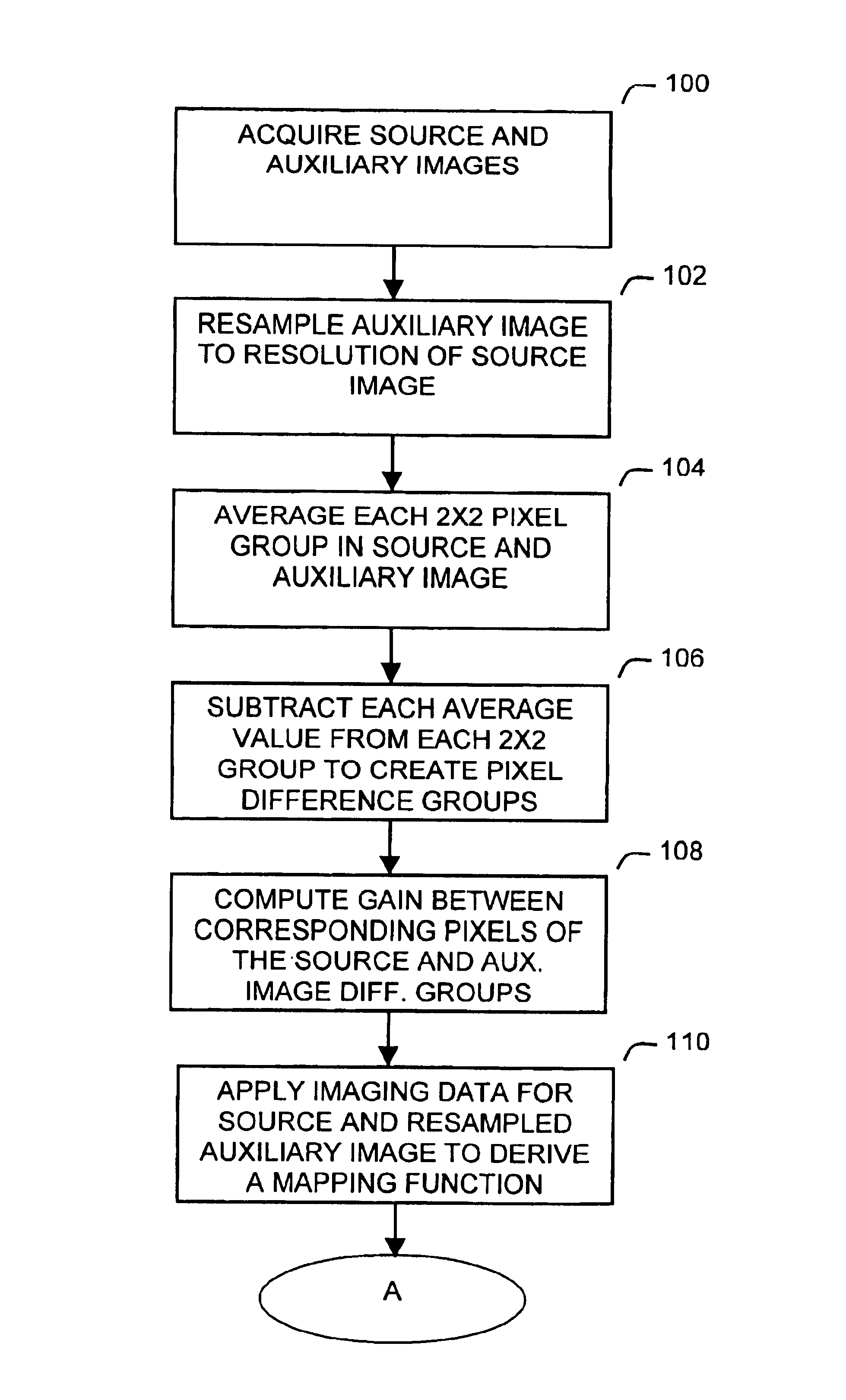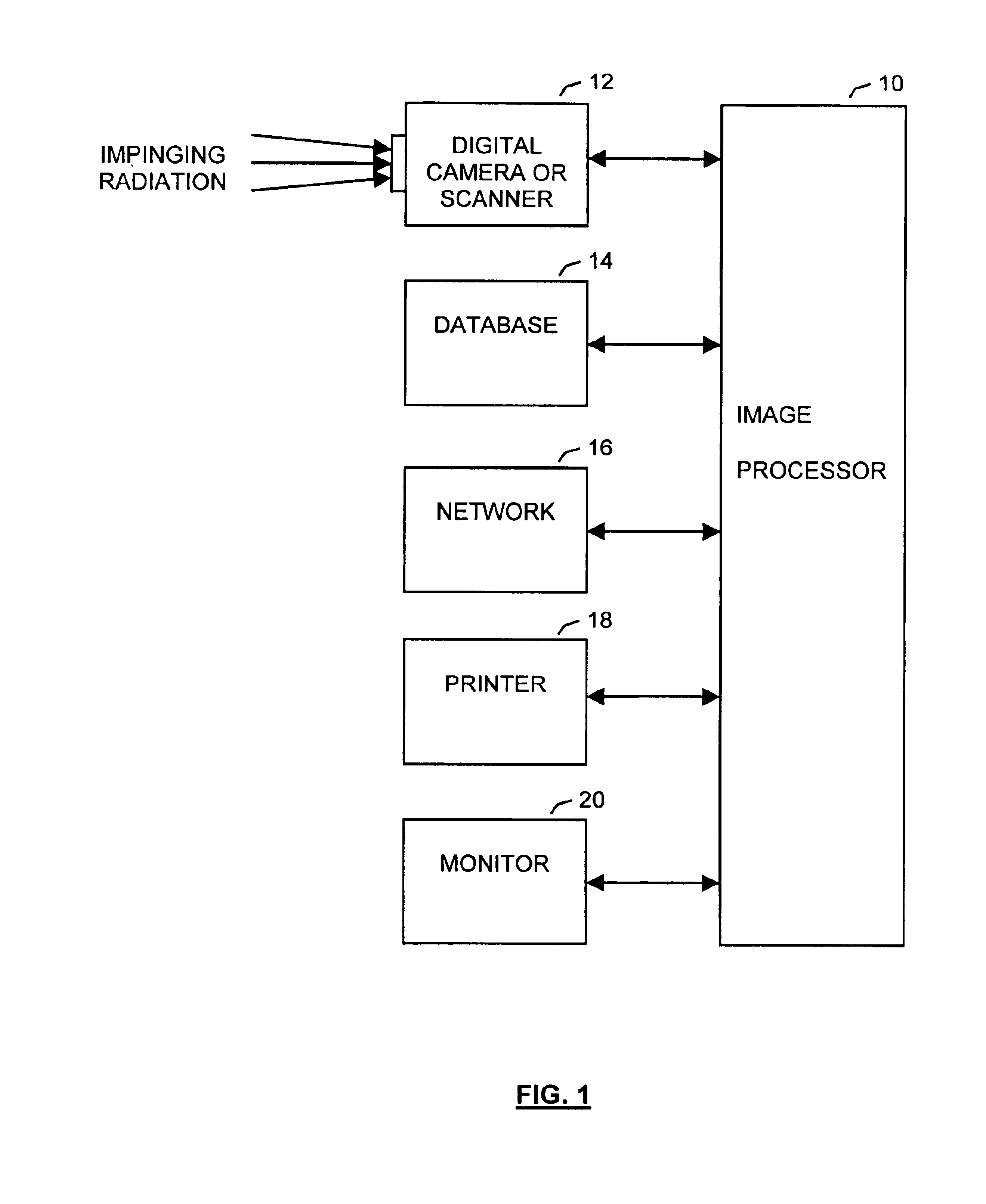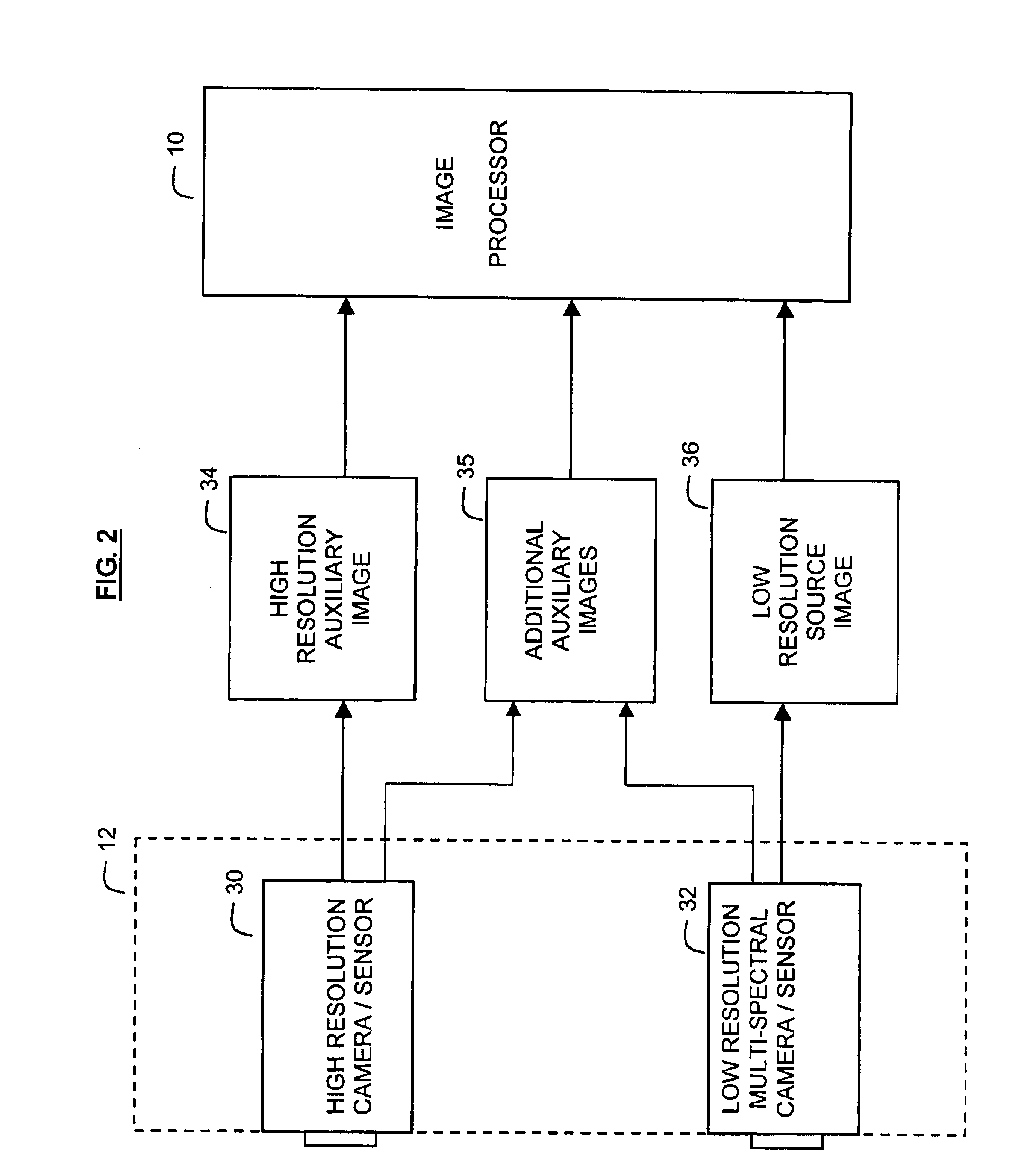Apparatus and method for efficiently increasing the spatial resolution of images
- Summary
- Abstract
- Description
- Claims
- Application Information
AI Technical Summary
Benefits of technology
Problems solved by technology
Method used
Image
Examples
example 1
[0034]Source Image: 200×200 pixels[0035]Auxiliary Image: 400×400 pixels from panchromatic sensor[0036]Multiple: (2× in each linear dimension)[0037]Common Resolution: 200×200
[0038]To resample the 400×400 pixel auxiliary image, define groups 50 of pixels in the auxiliary image as 2×2 groups of high-resolution pixels 52. Take the average pixel intensity value of each group 50 and define a new, coarse pixel 55 representing each group in the re-sampled 200×200 pixel auxiliary image. There is no need to resample the source image because the re-sampled auxiliary image has been converted to the same spatial resolution as the source image.
example 2
[0039]Source Image: 300×300 pixels[0040]Auxiliary Image: 800×800 pixels from panchromatic sensor[0041]Multiple: (2.66× in each linear dimension)[0042]Common Resolution: 300×300 pixels
[0043]Because the spatial resolution of the auxiliary image is not an integer multiple of the spatial resolution of the source image, the auxiliary image is resampled twice. First, the auxiliary image 34 is resampled to an intermediate spatial resolution of 600×600 pixels. This resampling is done by converting each 1.33 pixels in the 800×800 pixel auxiliary image 34 to 1 pixel using pixel interpolation. Subsequently, the intermediate auxiliary image is resampled a second time by grouping high resolution pixels 52 in the auxiliary image into 2×2 groups 50. The average pixel intensity value of each 2×2 group 50 defines a new, coarse pixel 55 representing each group in the 300×300 pixel resampled auxiliary image 38. There is no need to resample the source image 36 because the resampled auxiliary image 38 i...
PUM
 Login to View More
Login to View More Abstract
Description
Claims
Application Information
 Login to View More
Login to View More - R&D
- Intellectual Property
- Life Sciences
- Materials
- Tech Scout
- Unparalleled Data Quality
- Higher Quality Content
- 60% Fewer Hallucinations
Browse by: Latest US Patents, China's latest patents, Technical Efficacy Thesaurus, Application Domain, Technology Topic, Popular Technical Reports.
© 2025 PatSnap. All rights reserved.Legal|Privacy policy|Modern Slavery Act Transparency Statement|Sitemap|About US| Contact US: help@patsnap.com



